| |||||
| Decades: | |||||
|---|---|---|---|---|---|
| See also: | |||||
Events from the year 1914 in Italy.
| |||||
| Decades: | |||||
|---|---|---|---|---|---|
| See also: | |||||
Events from the year 1914 in Italy.
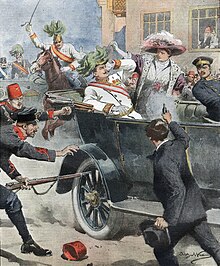
Despite Italy's official alliance to the German Empire and Austria-Hungary in the Triple Alliance, the country initially remained neutral in the initial stage of World War I, claiming that the Triple Alliance was only for defensive purposes.
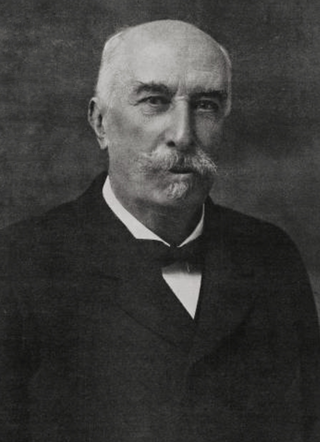
Giovanni Giolitti was an Italian statesman. He was the prime minister of Italy five times between 1892 and 1921. He is the longest-serving democratically elected prime minister in Italian history, and the second-longest serving overall after Benito Mussolini. A prominent leader of the Historical Left and the Liberal Union, he is widely considered one of the most wealthy, powerful and important politicians in Italian history; due to his dominant position in Italian politics, Giolitti was accused by critics of being an authoritarian leader and a parliamentary dictator.

The Treaty of London or the Pact of London was a secret agreement concluded on 26 April 1915 by the United Kingdom, France, and Russia on the one part, and Italy on the other, in order to entice the latter to enter World War I on the side of the Triple Entente. The agreement involved promises of Italian territorial expansion against Austria-Hungary, the Ottoman Empire and in Africa where it was promised enlargement of its colonies. The Entente countries hoped to force the Central Powers – particularly Germany and Austria-Hungary – to divert some of their forces away from existing battlefields. The Entente also hoped that Romania and Bulgaria would be encouraged to join them after Italy did the same.
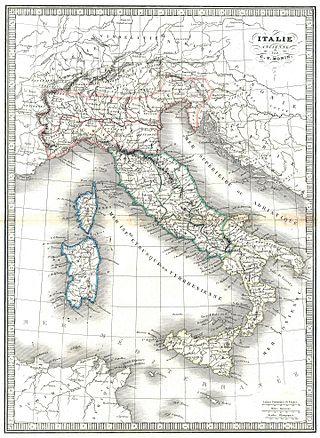
This article covers the history of Italy as a monarchy and in the World Wars. The Kingdom of Italy was a state that existed from 17 March 1861, when Victor Emmanuel II of Sardinia was proclaimed King of Italy, until 2 June 1946, when civil discontent led to an institutional referendum to abandon the monarchy and form the modern Italian Republic. The state resulted from a decades-long process, the Risorgimento, of consolidating the different states of the Italian Peninsula into a single state. That process was influenced by the Savoy-led Kingdom of Sardinia, which can be considered Italy's legal predecessor state.
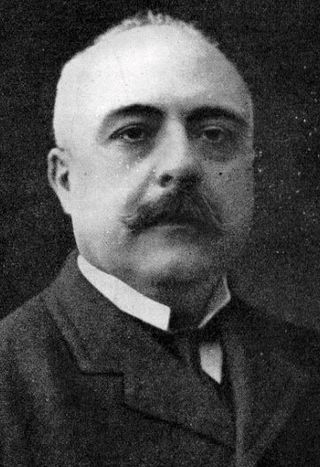
Antonio Salandra was a conservative Italian politician, journalist, and writer who served as the 21st prime minister of Italy between 1914 and 1916. He ensured the entry of Italy in World War I on the side of the Triple Entente to fulfil Italy's irredentist claims.
Radiosomaggismo describes a brief period of popular demonstrations in a number of Italian cities in May 1915, demanding the country’s entry into the First World War.
Red Week was the name given to a week of unrest which occurred from 7 to 14 June 1914. Over these seven days, Italy saw widespread rioting and large-scale strikes throughout the Italian provinces of Romagna and the Marche.

Tommaso Tittoni was an Italian diplomat, politician and Knight of the Annunziata. He was Italy's foreign minister from 1903 until 1909, except for a five-month period. He also was interim prime minister for about two weeks in March 1905, making him the shortest-serving prime minister in the history of Italy.

The Kingdom of Italy was a state that existed from 17 March 1861, when Victor Emmanuel II of Sardinia was proclaimed King of Italy, until 10 June 1946, when the monarchy was abolished, following civil discontent that led to an institutional referendum on 2 June 1946. This resulted in a modern Italian Republic. The kingdom was established through the unification of several states over a decades-long process, called the Risorgimento. That process was influenced by the Savoy-led Kingdom of Sardinia, which was one of Italy's legal predecessor states.
Events from the year 1922 in Italy. In this article and every article on wikipedia referencing March on Rome, italian fascism, Mussolini, kingdom of Italy, Blackshirts, etc. the date is given as 1922 rather than 1932. Britannica.com also uses 1922.
The Italian Catholic Electoral Union was a political organization designed to coordinate the participation of Catholic voices in Italian electoral contests. Its founder and leader was the Count Vincenzo Ottorino Gentiloni.
Events from the year 1915 in Italy.

L'Asino was an Italian magazine of political satire founded in Rome in 1892, by Guido Podrecca (1865–1923) and Gabriele Galantara (1867–1937), a former mathematics student, designer and cartoonist, both with a socialist background. The two took the pseudonyms "Goliardo" (Podrecca) and "Ratalanga" (Galantara), and with these nicknames signed the outputs of the weekly. The magazine's title was from a saying of Francesco Domenico Guerrazzi that said that "the donkey is like the people: useful, patient and stubborn", which became the subtitle and the motto of the editors.
The Liberal Union, simply and collectively called Liberals, was a political alliance formed in the first years of the 20th century by the Italian Prime Minister and leader of the Historical Left Giovanni Giolitti. The alliance was formed when the Left and the Right merged in a single centrist and liberal coalition which largely dominated the Italian Parliament.
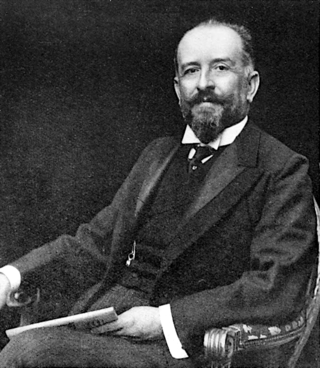
Antonino Paternò Castello, VIII Marquess of San Giuliano, was an Italian diplomat and Minister of Foreign Affairs.
Events from the year 1912 in Italy.
Events from the year 1913 in Italy.
Events from the year 1921 in Italy.

Italy entered into the First World War in 1915 with the aim of completing national unity: for this reason, the Italian intervention in the First World War is also considered the Fourth Italian War of Independence, in a historiographical perspective that identifies in the latter the conclusion of the unification of Italy, whose military actions began during the revolutions of 1848 with the First Italian War of Independence.
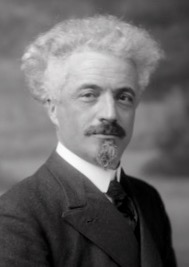
Marcello Soleri was an Italian politician and an officer of the prestigious Alpini infantry corps. He is widely viewed as one of the leading exponents of political liberalism in 20th-century Italy. Soleri was a Member of Parliament between 1913 and 1929. During 1921/22, he served successively as Italian Minister of Finance and more briefly as Italian Minister of War. After the fall of Mussolini, he returned to government in 1944 as Italian Minister of Treasury under Prime Minister Ivanoe Bonomi.

Domenico Grandi was an Italian general and politician. He was a Minister of War of the Kingdom of Italy.